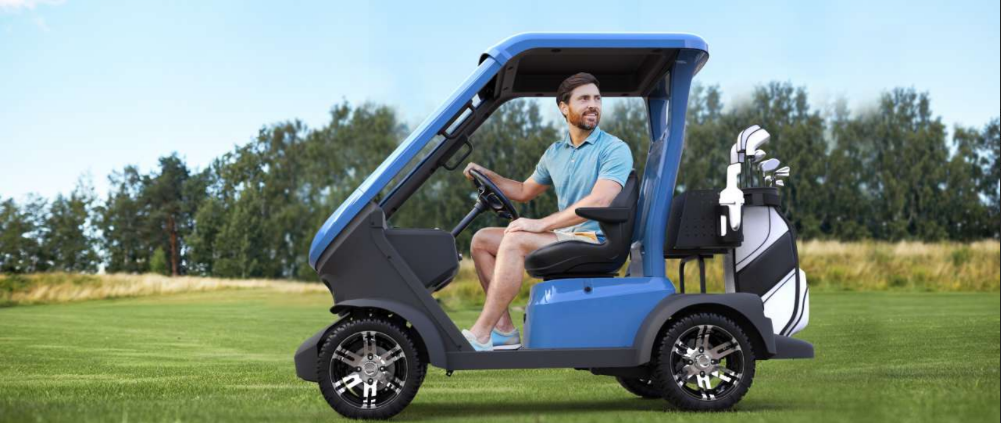How Long Do Lithium Golf Cart Batteries Last? Real Lifespan Data & Tips to Extend It
Quick Answer: How Long Do They Actually Last?
Most lithium golf cart batteries last between 8 to 12 years, or roughly 3,000 to 5,000 charge cycles—depending on usage patterns and maintenance habits.
That’s about two to three times longer than traditional lead-acid batteries, which typically last only 3–5 years under similar conditions.
In simple terms, a well-maintained lithium battery can power your golf cart reliably for a decade or longer, offering consistent performance and minimal degradation over time.
Why Lithium Golf Cart Batteries Last Longer
Lithium batteries outperform lead-acid ones not just because of chemistry, but also because of smarter design and protection mechanisms. Here’s why:
- Superior Chemistry: Lithium iron phosphate (LiFePO₄) cells are inherently stable and can handle thousands of deep discharge cycles without major capacity loss.
- Higher Depth of Discharge: They can safely use up to 80–90% of their capacity per cycle, while lead-acid batteries should stay above 50% to avoid damage.
- Built-in Battery Management System (BMS): The BMS automatically prevents overcharging, overheating, and unbalanced cells—extending both safety and life.
- No Sulfation or Water Loss: Unlike lead-acid batteries, lithium models don’t corrode or dry out, meaning zero maintenance and no acid leaks.
If you’re exploring a long-term, maintenance-free energy solution, check out high-quality golf cart battery options from trusted suppliers designed specifically for performance and longevity.
Factors That Affect Real-World Lifespan
While lithium batteries are durable by design, several external factors influence how long they actually last in your golf cart:
- Usage Frequency: Batteries in daily-use golf fleets wear faster than those used occasionally for recreation.
- Temperature Exposure: Extreme heat accelerates degradation, while extreme cold can reduce charge efficiency.
- Charging Habits: Regular deep discharges or leaving batteries fully drained can shorten lifespan.
- Storage Conditions: Long periods of storage at 100% or 0% charge can cause irreversible stress.
- Charger Quality: Using a compatible LiFePO₄ charger ensures balanced charging and prevents overvoltage.
A well-managed charging schedule and moderate daily use can keep your battery above 80% of its original capacity even after 8 years.
How to Extend Lithium Golf Cart Battery Lifespan
You can dramatically increase the usable life of your lithium battery by following these simple yet effective maintenance tips:
- Avoid overcharging or full discharging.
- Use a charger designed for lithium (LiFePO₄) chemistry.
- Store batteries around 50–60% charge if unused for long periods.
- Keep batteries away from direct heat or freezing conditions.
- Inspect terminals and connectors periodically for looseness or corrosion.
- Monitor cell balance through your BMS app or onboard system.
For a more detailed comparison of how to care for different battery types, see our guide on how to maintain golf cart batteries the right way.
Real Usage Examples & Cost Implications
Let’s take a practical example:
A golf course that operates 20 carts daily might replace lead-acid batteries every 3 years, costing several thousand dollars in parts and labor.
With lithium batteries, those same carts could run 8–10 years with minimal maintenance and no water refilling.
Even though the initial investment is higher, the total cost per year of service for lithium systems is typically 40–60% lower than lead-acid equivalents.
Plus, consistent voltage output means smoother acceleration and longer range—something every fleet manager and golfer appreciates.
If you’re considering switching but want to understand what’s involved, check out our complete guide on lithium battery upgrade for golf cart — what to know before you make the switch.
Final Takeaway
A quality lithium golf cart battery can last close to a decade—sometimes even longer with proper care.
Its combination of high efficiency, deep discharge capability, and zero maintenance makes it an unbeatable choice for both personal carts and commercial fleets.
If longevity and reliability are your priorities, upgrading to lithium is no longer a luxury—it’s the logical next step for a smarter, more sustainable ride.
Related Reading:


